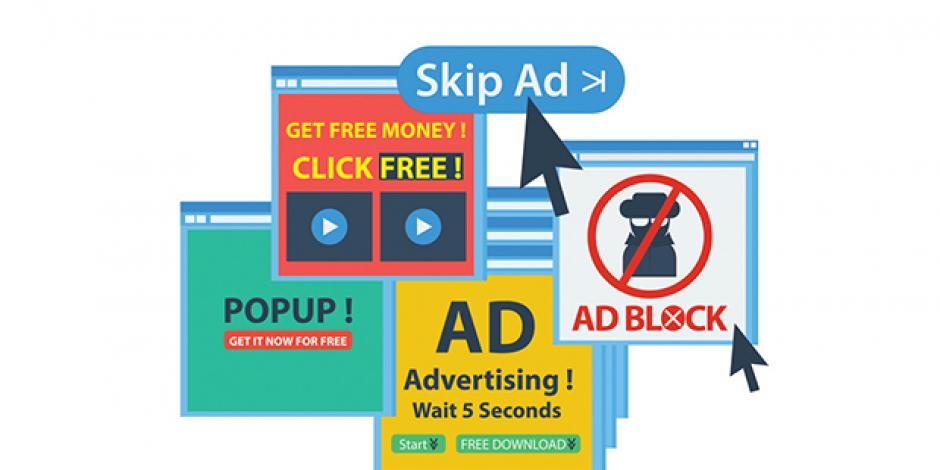Please don’t interrupt me! It’s one of the first social rules we learn as children. Put up your hand if you’d like to ask a question in class. Don’t to butt into sth.bei etw. dazwischenplatzenbutt into a conversation. Don’t to distractjmdn. ablenkendistract me when I’m trying to concentrate.
Unsurprising, then, that consumers are now putting advertisers in the to put sb. in the naughty corner (UK, ifml.)jmdn. (zur Strafe) in die Ecke stellennaughty corner for constantly to disruptetw. unterbrechendisrupting our time online with intrusivestörendintrusive pop-ups.
Ad blockers are thriving
According to a recent survey by German firm Adblock Plus and US marketing company HubSpot, 73 per cent of users in the US and Europe dislike pop-up adverts, compared with only 18 per cent who feel the same way about print adverts.
Growing irritationVerärgerungirritation has led many of us to take action. By mid-2015, a report by PageFair and Adobe found there were nearly 200 million active users of ad-blocking software around the world, and the number is growing fast. KPMG consultants found that almost half of UK web users planned to install ad-blocking software by the end of this year.
The threat to publishers who rely on ad revenueWerbeeinnahmenad revenue is immense, causing some, such as Forbes and the UK’s City AM, to block readers who block ads. Critics have called ad blocking everything from immoral to “a modern-day protection racket (US)Schutzgelderpressungprotection racket”, although some believe the backlashGegenreaktionbacklash will ultimately lead to better advertising and new business models. As media expert Emily Bell wrote in The Guardian, “Ad blocking to thriveflorierenthrives because of a failure towards consumers. Forcing people to consume advertising that to strip dataDaten abgreifenstrips their data and costs them money is hardly a vote-winning strategy.”
Everyone hates pop-up surveys
Out of kindness to the publishing industry, I don’t block the adverts that pay for my free content, but my otherwise saintly level of patience does not extend to that other pop-up pestPlagepest: the surveyUmfrage, Studiesurvey. Like mothMottemoths that eat a hole in the most obvious part of your jumper (UK)Pulloverjumper, the pop-up survey always to devour sth.etw. verschlingendevours your screen just when you’re in the biggest hurry. It also wants your opinion as soon as you land on a page, even before there’s a relationship — it’s like a first date asking if you love him before you’ve sat down to eat.
The pop-up survey always devours your screen just when you’re in the biggest hurry
A 2016 survey of US consumers by IgniteFeedback found that almost 90 per cent of people “hated” taking pop-up surveys. It advised businesses to seek feedback in ways that are briefkurzbrief, fun, relevant, rewarding, polite — and optional.
IgniteFeedback also suggested waiting until “some time has passed” before trying to to engagein Kontakt tretenengage. It should be common sense, but if you need to to grab sb. (ifml.)sich jmdn. schnappengrab a customer because they might to bounce awayweghüpfen; hier: die Aufmerksamkeit anderen Dingen zuwendenbounce away in three seconds, they’re probably not your customer. They’re just a lost shopper — and it’s unlikely they came out looking for a survey.

Elisabeth Ribbans is a British journalist and editorial consultant. She is also a former managing editor of The Guardian in London. Contact: ej.ribbans@gmail.com
Neugierig auf mehr?
Dann nutzen Sie die Möglichkeit und stellen Sie sich Ihr optimales Abo ganz nach Ihren Wünschen zusammen.



